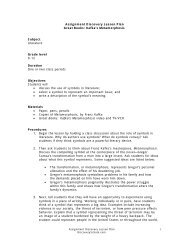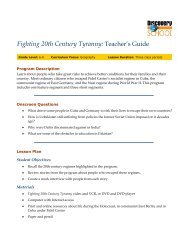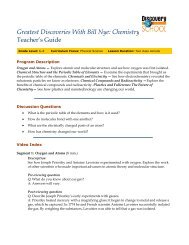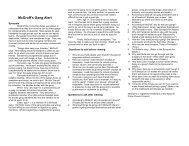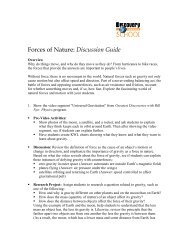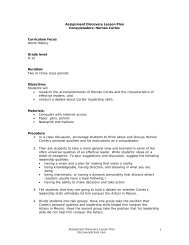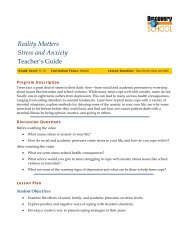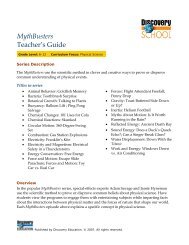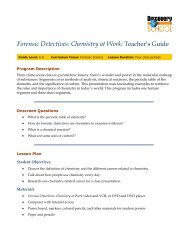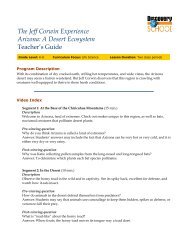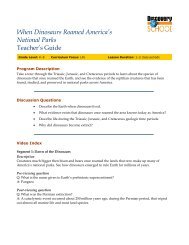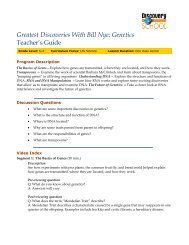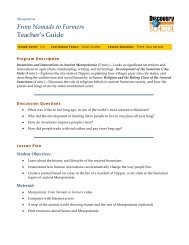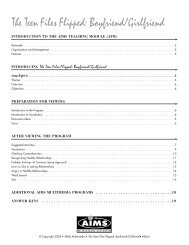Discovering History 20th Century Biographies:World Statesmen ...
Discovering History 20th Century Biographies:World Statesmen ...
Discovering History 20th Century Biographies:World Statesmen ...
Create successful ePaper yourself
Turn your PDF publications into a flip-book with our unique Google optimized e-Paper software.
<strong>20th</strong> <strong>Century</strong> <strong>Biographies</strong>: <strong>World</strong> <strong>Statesmen</strong><br />
Teacher’s Guide<br />
• Examine the role of each in national and international affairs.<br />
• Analyze the impact of their leadership on national affairs and international relationships.<br />
• Use maps to gain a clearer understanding of the location of places and events.<br />
• Research and discuss the Munich Pact.<br />
• Examine each statesman’s approach to achieving or maintaining peace.<br />
• Analyze and discuss the traits and characteristics common to effective leadership.<br />
• Explore the philosophy of civil disobedience and passive resistance.<br />
• Research and discuss the history of the Nobel Prize.<br />
• Research and write a report on the life and legacy of one of the five statesmen.<br />
Materials<br />
• <strong>20th</strong> <strong>Century</strong> <strong>Biographies</strong>: <strong>World</strong> <strong>Statesmen</strong> video<br />
• Computer with Internet access<br />
• Large world map<br />
• Print resources about David Lloyd George, Neville Chamberlain, Winston Churchill, Mohandas<br />
Gandhi, and Ralph Bunche<br />
Procedures<br />
1. Prior to viewing the program, ask students to define the word “statesman.” Discuss the<br />
leadership qualities a person might need to be an effective statesman. On the board print the<br />
names of the statesmen presented in this program: David Lloyd George, Neville Chamberlain,<br />
Winston Churchill, Mohandas Gandhi, and Ralph Bunche. Explain to students that they will be<br />
viewing a program about these leaders. Ask students to share what they know about these<br />
statesmen. Encourage them to keep the following questions in mind as they watch the program:<br />
What were the significant contributions of each statesman? What specific traits or characteristics<br />
did each demonstrate that helped make him an effective leader? (Teachers may also wish to<br />
refer to the vocabulary section of this guide and discuss any terms that are unfamiliar to<br />
students.)<br />
2. After viewing the program, review the information presented: Who were the statesmen<br />
presented in the program? What leadership position did each hold? When did each serve? What<br />
did each accomplish? How did each individual’s country benefit from his statesmanship? What<br />
impact did each individual’s leadership have on other nations? As leaders, how were these men<br />
similar? How were they different?<br />
3. Discussion: There are numerous—sometimes contradictory—views concerning the traits and<br />
characteristics leaders should have. Compare, for example, the traits and characteristics of<br />
Mohandas Gandhi with those of Winston Churchill. Discuss the following with students: How<br />
Published by Discovery Education. © 2006. All rights reserved.<br />
2



